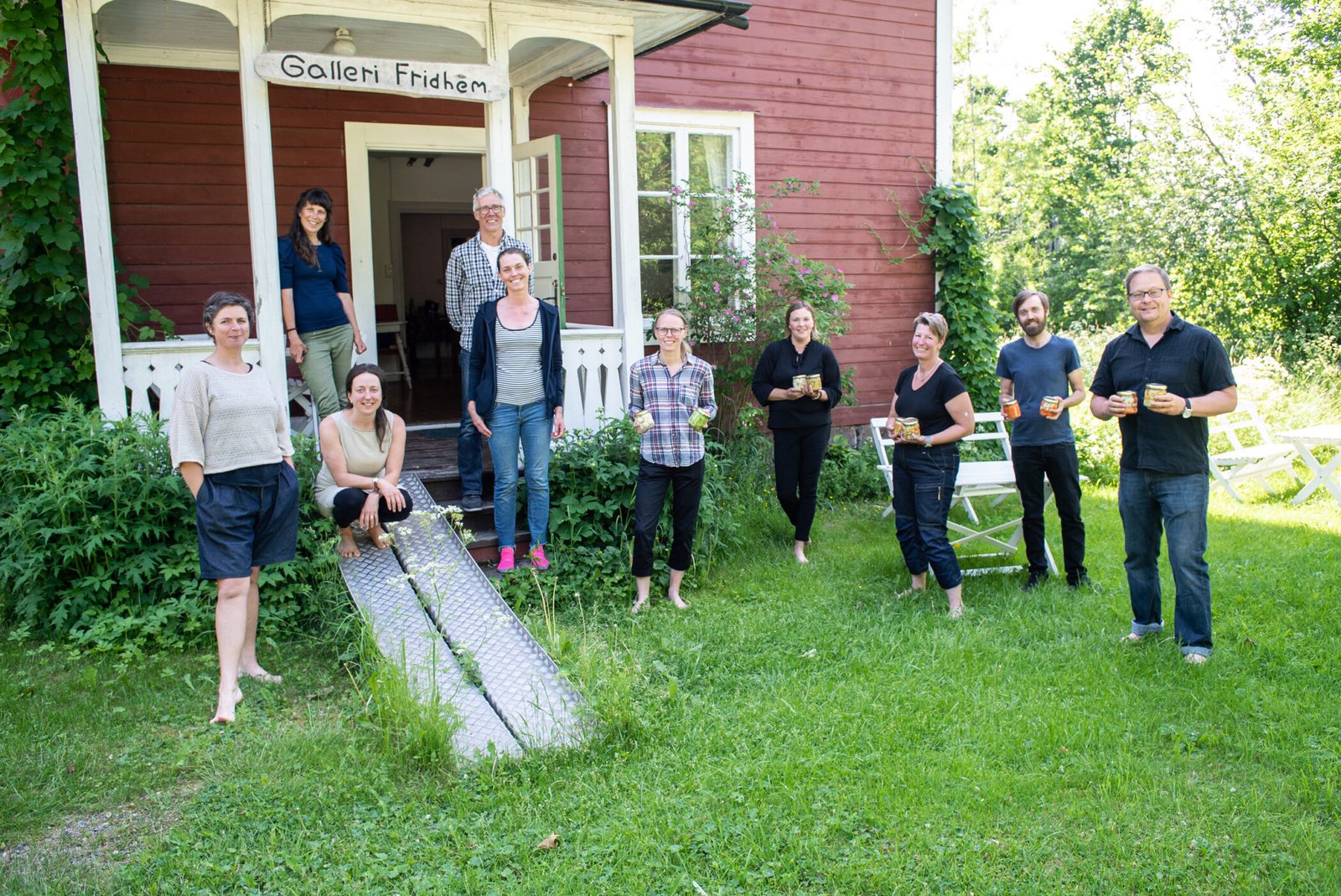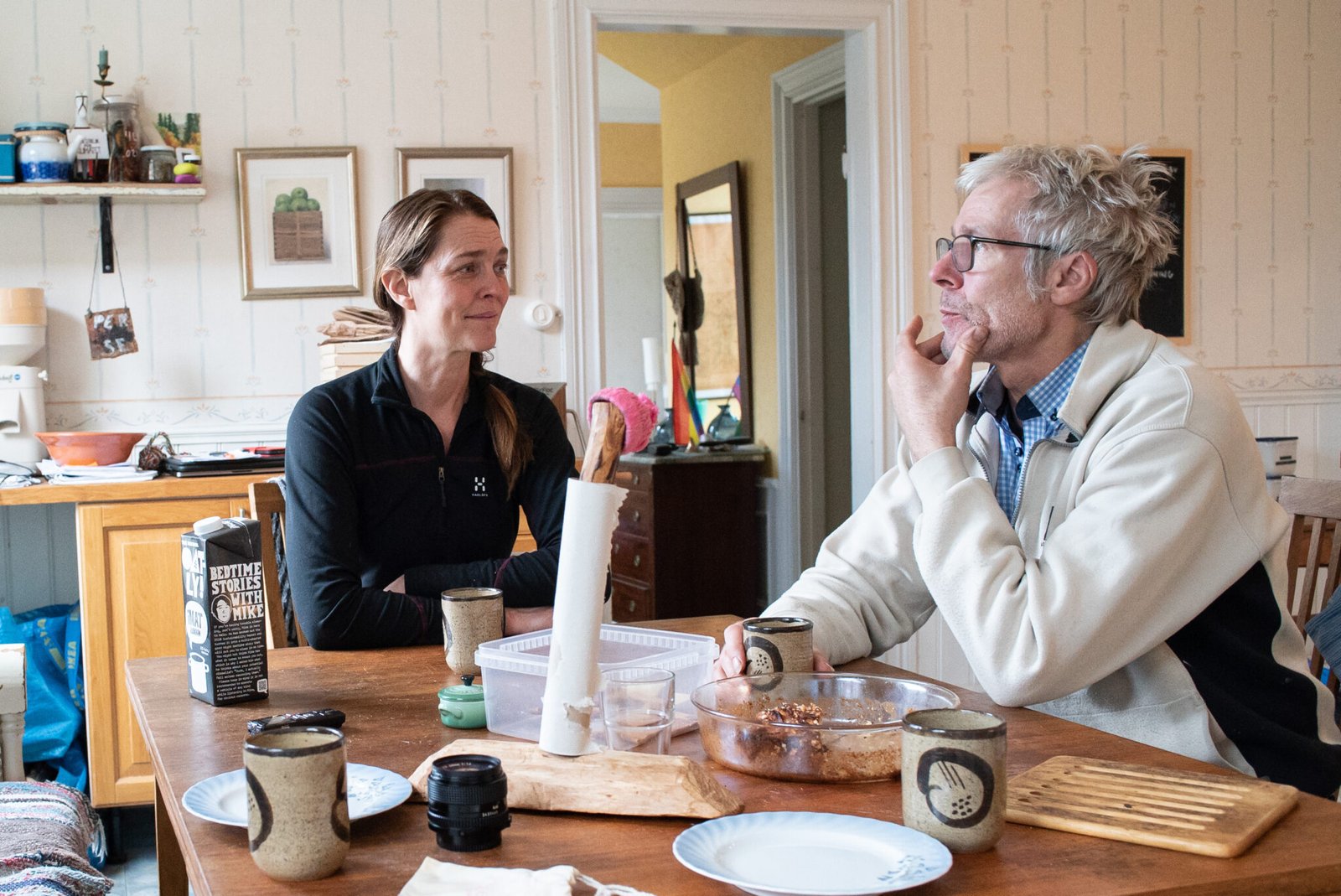
Conversation with Sareidah Hildebrand and Joakim Lundström
We visit Joakim and Sareidah on a mild day in early November. Jars of sauerkraut are placed on the kitchen island, and above it, hang a host of chili peppers and cherry tomatoes slowly ripening in the warmth.
Sareidah and Joakim moved to Arbrå in 2018 to Lillbros Gård, which was an active farm until the early 90s. “Our goal has been to revive the farm. We have no experience in the agricultural business, so we thought that we wouldn’t try do the same thing as all the other farmers – because they have been doing this for generations and can do it much better.”
They moved from a house in Stockholm that had an old fruit orchard with fifteen approximately 150-year-old apple trees, which may have been the seed that blossomed into their current life project.
Both of them work as musicians, and during the COVID-19 pandemic, when they were mostly at home without gigs, they took a distance course in apple cultivation. Before the course ended, they agreed to a joint order and were due to receive 300 apple trees within six months. “In the meantime, as we wait for the apple trees to bear fruit, we are also growing vegetables. While apples are our primary focus, we wanted to take the first step towards self-sufficiency in vegetables. We have a wonderful cellar, and our goal is to fill it with food,” they explained.
Joakim’s interest in processing stems from a desire to become self-sufficient, to be able to sustain themselves in times of crisis, but also out of a deep love for food. “Then the old methods come into play – preserving, fermenting, saving. I just love it, I just can’t help myself,” Joakim laughs. “Our tours have also been a source of inspiration, especially when we’ve been in Estonia, Latvia, and Lithuania,” Sareidah added. “We had vegetable soup made solely from fermented vegetables, and we thought – Wow! What is this? We love the tanginess,” she explained with enthusiasm.
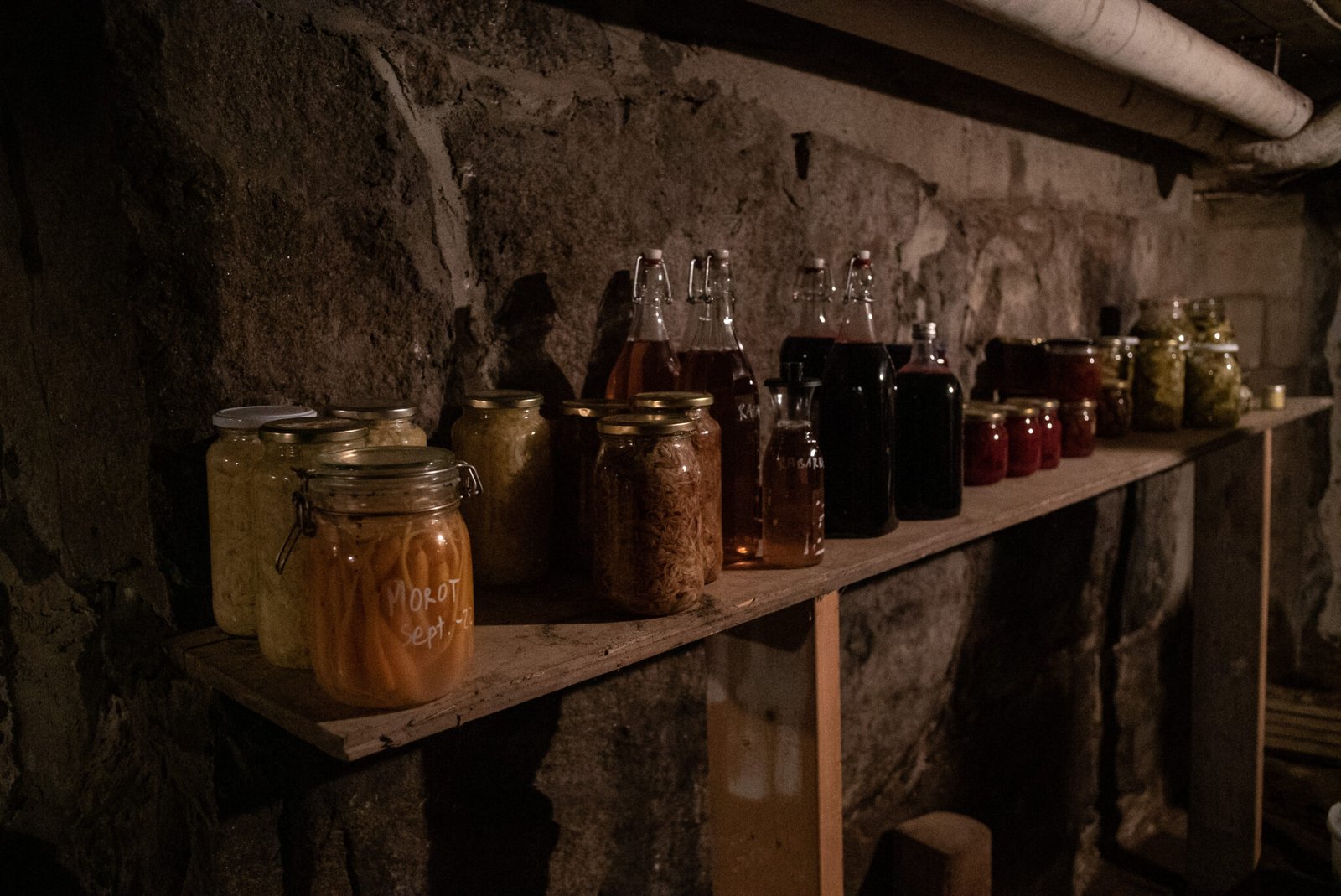
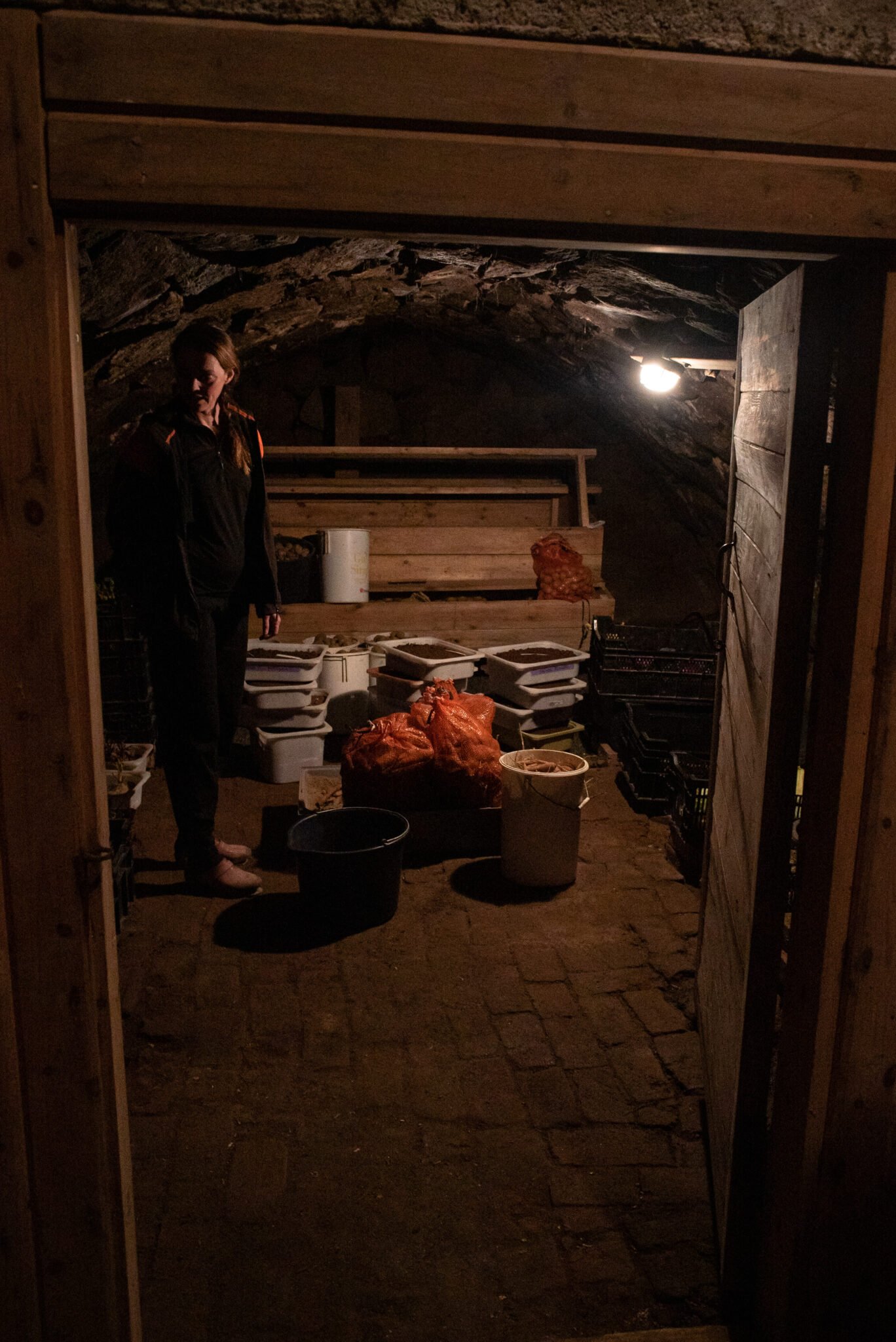
Lillbros Gård is part of a cultivation cooperative consisting of 22 farmers who rent a restaurant kitchen in Bollnäs on Mondays. The idea is to municipalities do as much as possible to encourage their municipality to choose local, as the cooperative ensures that the right quantities of produce are gathered and the vegetables are washed in the restaurant kitchen. “It may not be entirely rational, but it’s so interesting and beneficial that we can bring all the small pieces together. We really have to give credit to our municipalities here for taking responsibility,” Joakim praised. “All municipalities claim to support the local economy and buy locally and organically, but here they have really made a commitment. It’s important that they are recognised for it because now all municipalities are caught in a squeeze with rising costs and energy crises and everything. In such areas, there is a huge risk that they will tighten their belts, especially in these areas,” says Sareidah.
A major obstacle for municipalities is the price of local food. However, as Joakim points out, it is the large producers or suppliers who raise the prices of food to cover their significant costs for electricity, diesel fuel for large storage facilities, cold rooms, and transportation. “We don’t have increased production costs. So, our already expensive organic vegetables may actually maintain their price,” Joakim explained.
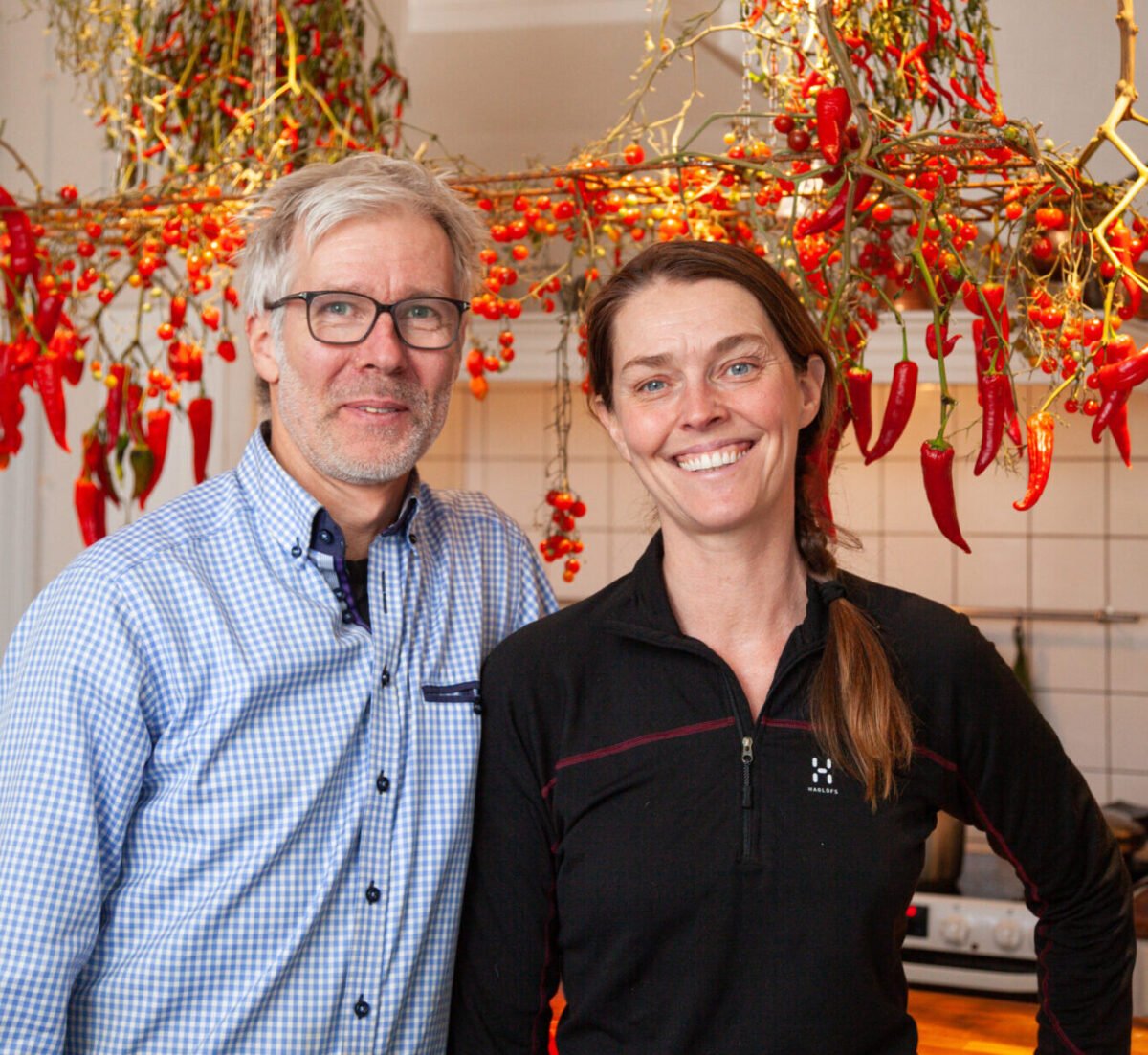
Although they aim to sell the majority of their apples as eaters they also want to be able to process the rest on the farm which will take some building up. “We are proud apple growers, but we don’t have much fruit yet. We still have a few sample apples. We used some for stuffing the turkey. So far, we’ve only had a basket…” Joakim says. “Everything is so new, we take it one step at a time. We are not the type of endeavour that has the complete picture in front of us, or maybe the picture exists, but we need to develop it over time. We don’t want it to become too big in anything we do. Apples will be the main focus, and as we increase apple cultivation, vegetable cultivation will decrease to meet our needs and to keep our spring vegetable store running and for processed products. We don’t want much more,” Sareidah explained.
A near future plan is to obtain permits from environmental health authorities so that they can start selling processed products as well. “Fermentation feels like the easiest step because there aren’t as many critical points when it comes to shelf life. I would like to make chili sauce, for example. There are others who do it, but not here – we only sell locally, that’s the idea,” Sareidah explained.
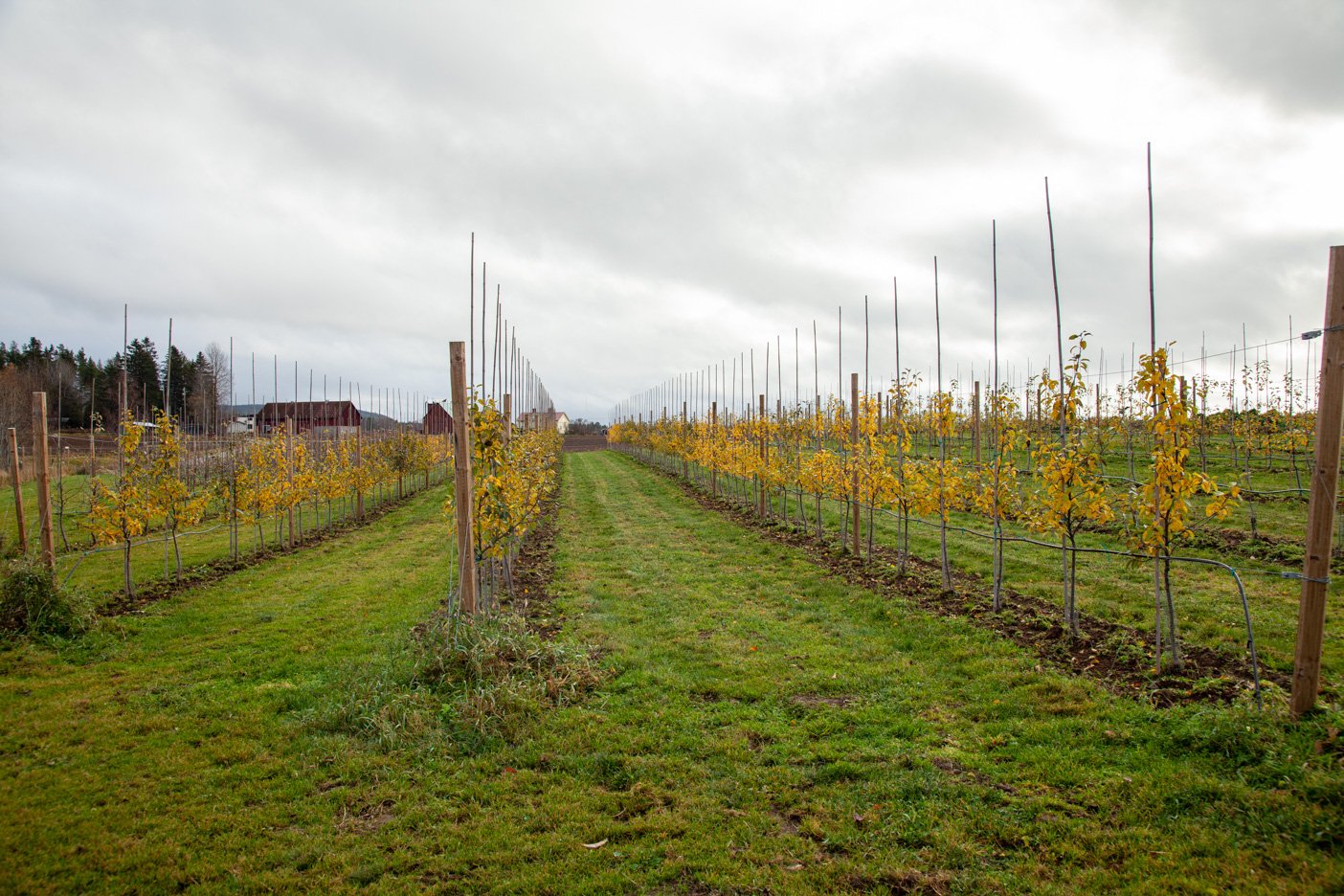


Tips and tricks for fermentation and how to use ferments in cooking – Joakim
“I had an idea to ferment potatoes and make rårakor (like hash-browns) and palt (a Swedish meat filled dumpling) from them. I grated the potatoes, fermented them (2% salt), and used them in the palt batter – it turned out so delicious, seriously – it was really something! It added another level – you get a flavour in the food that isn’t really present in Swedish cuisine otherwise,” Joakim shared enthusiastically. “I also fermented whole cabbage heads – that’s something I can really recommend. I made small dolmas with the sauerkraut and a bit of Balkan-inspired ground meat with paprika – in that direction. I rolled them up, pan-fried them and baked them in the oven, and served them with boiled potatoes and lingonberry jam.” “It was delicious!” adds Sareidah Joakim generally prefers single vegetable fermentations with 2% salt, which can be flavoured later, such as their ‘cheating kimchi.’ “I take sauerkraut, mix in tomato paste, garlic, chili, oil, a little of what I have. I simply spice up the sauerkraut,” Joakim explained. Using fermented vegetables in cooking is also popular in the household. “I make a chicken stir-fry, and at the end, I mix in sauerkraut and stir-fry it together with glass noodles – it’s so delicious,” They have also conducted some experiments together with a chef friend who has a food truck in Bollnäs. “We got into fermenting cucumbers since we had so many cucumbers last year, but the fermentation didn’t turn out so well, a bit slimy. So, we made a kind of gazpacho barbecue sauce with the fermented cucumbers, mixed with chili, paprika, and grilled peppers. Then you didn’t notice the sliminess, it became a flavour enhancer,” Joakim described the creative process.

Sareidah and Joakim participates in the first Förädlingsodling: fermentation for small-scale vegetable growers workshop in Stjärnasund June 2021.
